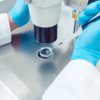Fritextsökning
Artiklar per år
Innehållstyper
-

He will be the new chair of Medicon Valley Alliance
Niels Abel Bonde is the nomination committee’s proposal and the most likely person to take over as the new chairman of the Swedish-Danish life science cluster organisation Medicon Valley Alliance (MVA).
-

Egetis bekräftar budsamtal
Den svenska läkemedelsutvecklaren Egetis Therapeutics för diskussioner om ett potentiellt bud på bolaget. Det bekräftar företaget i en kommentar till ihärdiga rykten på marknaden.
-

Alligator tar in nästan 200 miljoner för utveckling av cancerkandidat
Styrelsen för Lundbaserade Alligator Bioscience har beslutat om en nyemission på upp till 199 miljoner kronor. Fokus ligger nu framförallt på den fortsatta utvecklingen av mitazalimab, bolagets läkemedelskandidat mot bukspottkörtelcancer.
-

KI’s new President: “We need to work closer together”
A closer link between research and education and a stronger “we-feeling” are aims that Annika Östman Wernerson sets out to achieve as the new President of Karolinska Institutet. She will not give up her research entirely though. “I think it’s crucial
-

Vinnova is going to establish a new innovation cluster
Vinnova, the Swedish Agency for Innovation Systems, has been commissioned by the government to establish a national innovation cluster for advanced medicines.
-

Meeting with focus on South Korea and Japan’s life sciences
Large, complex and exciting – this is how Britta Stenson, Business Sweden, describes the life science markets of Japan and South Korea, which took centre stage during a webcast seminar.
-

Major advances in IVF labs in the last few decades
Since the introduction of in vitro fertilisation several decades ago, many developments have been made in the field, and the main part of that development has taken place in the lab.
-

Pfizer i jätteförvärv av Seagen – betalar 43 miljarder dollar
Amerikanska läkemedelsjätten Pfizer köper Seagen, ett bioteknikbolag specialiserat på cancerläkemedel. Köpeskillingen landar på 43 miljarder dollar, vilket gör affären till den största inom branschen på flera år.
-

Så mycket väntas lecanemab sälja globalt
Försäljningen av Leqembi (lecanemab), som nyligen fick ett accelererat USA-godkännande som behandling mot Alzheimers sjukdom, väntas globalt uppgå till sju miljarder dollar år 2030, enligt det japanska läkemedelsbolaget Eisai.
-

“I am driven by the desire to develop a product that can be sold worldwide”
Ranked number one in the world by the WHO in diarrhoea research and soon in phase III studies for its vaccine candidate – Scandinavian Biopharma is rushing forward in the pursuit of the world’s first ETEC vaccine. Meet the company’s CEO Björn Sjöstrand.
-

Column: ”Cheating with pea flowers and does it matter whether you are right?”
Is it possible to forgive shortcuts or outright cheating in science - if it turns out that the researcher was ultimately right? Anna Törner discuss this topic in a column.
-

Stor kartläggning av svensk läkemedelsutveckling - "Väldigt imponerande bidrag"
Trots tuffa tider planerar två av tre life science-bolag att nyrekrytera – och antalet läkemedelsprojekt fortsätter att öka. Det visar branschorganisationen Sweden Bios stora kartläggning av svensk läkemedelsutveckling.
-

Företag i Kanada får börja tillverka kokain
Ett företag i den kanadensiska provinsen British Columbia har fått tillstånd att tillverka och sälja kokain på licens.
-

The Swedish National Board of Health and Welfare rejects prioritising andrology as a speciality
Male infertility can be linked to a shorter lifespan and several severe diseases, but when couples who want children are examined, the focus is on the woman. Experts in the field claim that andrology needs to become a speciality in Sweden to increase awareness and knowledge. But the Swedish National Board of Health and Welfare says that it is not a priority.
-

“An entire industry is about to be wiped out”
According to Jennie Ekbeck, CEO of Umeå Biotech Incubators, Sweden risks not having any small diagnostic companies left in five years.
-

How critical are the “Spermageddon” reports? – Researchers call for action
A much talked about meta-study indicates that sperm concentration in men’s seminal fluid has halved in 40 years. Experts in andrology that Life Science Sweden speaks to believe that the results must be taken seriously, and call for action from the Swedish authorities.
-

Column: ”Life as a F1 race”
"The F1 car makes several pit stops during a race and during a lifetime the human being may also have to come in several times for maintenance", Björn Ursing writes in a column.
-

Editorial: ”AI that both impresses and frightens”
”In the past, I've rarely been particularly impressed by something that was produced by AI. But this is something completely different”, Samuel Lagercrantz writes in an editorial.
-

Hello Jenni Nordborg!
Life Science Sweden would like to know more about Jenni Nordborg and asks her about her new job, why she became a chemical engineer and who her role model is.
-

A surprising discovery about the immune system in cases of cancer
Professor Göran Jönsson is trying to understand why some patients benefit from immunotherapies while others don’t. A couple of years ago, he made a surprising discovery about the function of the immune system.
-

Rapid development in blood analysis – “Sweden is leading the race”
Thousands of analytical tests using just one single drop of blood. What was revealed as a hoax just a few years ago is now a reality, according to KTH professor and serial entrepreneur Mathias Uhlén.
-

Column: ”Authentic leadership and clear mandates pave the way for more female CEOs”
”I believe that the aspect of having clear mandates and titles on the one hand and women progressing into top positions must be explored further”, Helena Strigård writes in a column.
-

Ny genterapi med Crispr-Cas9 väntar på godkännande
Ett nytt genterapeutiskt läkemedel från Vertex Therapeutics, riktat mot sicklecellssjukdom och beta-thalassemi, väntar på godkännande från europeiska och amerikanska myndigheter.
-

Individual DNA passport could result in fewer drug side effects
You may be required to show a DNA passport when you pick up medicines at the pharmacy in the future. According to a new study, patients might suffer 30% fewer side effects if the drug treatment is adapted to their genes.